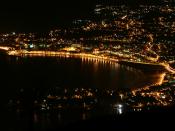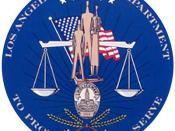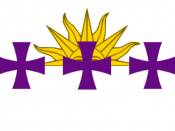Myths can be defined as beliefs which may contain certain truths about common traits prevalent within a tribe or society. While myths may not be an ideal way to acquire insightful knowledge about the true nature of a certain culture, it can certainly render a sneak peak into the dwellings of a particular society. The myth of the rebellious Chicanos in America has been an important aspect of many Chicano's history living in America for many generations. Such rebellions have taken the forms of acting, behaving, driving, dressing "differently" from the members of the white culture. Rudolph Anaya in "I'm the king: The Macho image" and Martin Espada in "The Puerto Rican dummy and the merciful son" first explore Chicano rebellion as a consequence of a rage evolved gradually in response to the exploitations of the White culture and then offer solutions to address this rageful behavior among Latino males.
The expressions of Chicano rebellion in America have taken a diverse and often deadly path throughout its evolutionary history. Chicano's first organized rebellious movement against the White oppressions dates back to the days of post WWII when numerous decorated Chicano veterans returned from War only to face injustice and discrimination at the hands of the mainstream America. While carrying medals of bravery, many war veterans were killed wanting service at cafes and restaurants all across America (Sterngold 11). The lack of political organization or a meaningful avenue to vent frustration, the Chicanos formed the turbulent mass movement of Pachucos which intended to express their disgust with America by distancing themselves from everything that defined the White culture.
Pachucos represented a rebellious youth culture among Chicanos. In August of 1942, 300 Mexican youth were rounded up by Los Angeles police department on variety of charges without any physical evidence. During...


